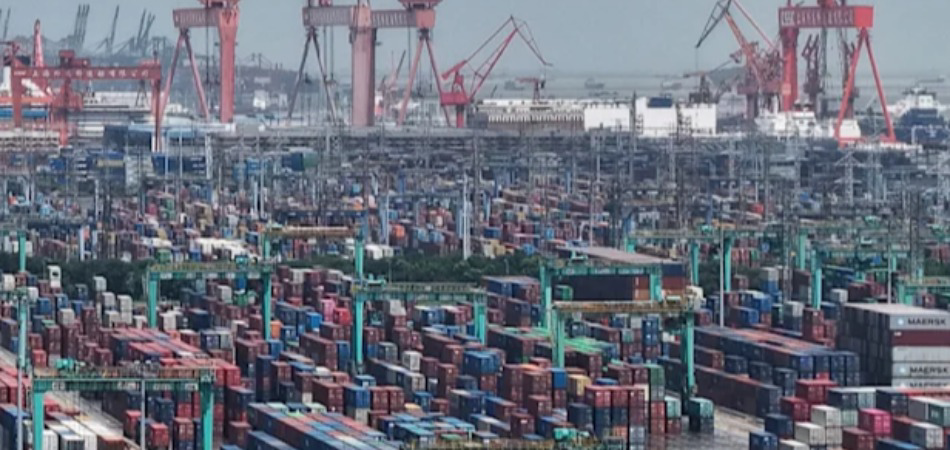Fragmented foreign investment hurts emerging economies most: IMF

MG News | April 06, 2023 at 02:30 PM GMT+05:00
April 06, 2023 (MLN): As geopolitical tensions rise, companies and policymakers are increasingly looking at strategies to make supply chains more resilient by moving production home or to trusted countries, the International Monetary Fund (IMF) said in its World Economic Outlook for April 2023.
The US Treasury Secretary argued in April 2022 that firms should move towards the friend-shoring of supply chains. More recently, the European Commission proposed the Net Zero Industry Act to counter the subsidies in the US Inflation Reduction Act. And China aims to replace imported technology with local alternatives to depend less on geopolitical rivals, it added.
These examples highlight the rising trend of geoeconomic fragmentation, as we show in an analytical chapter of the latest World Economic Outlook.
"Our analysis of the impact on foreign direct investment shows that such flows have been characterized by divergent patterns across host countries, particularly in strategic sectors, like semiconductors," it read.
The flow of strategic FDI to Asian countries started to decline in 2019 and has recovered only mildly in recent quarters, except for flows to China that have not yet recovered.

Over the last decade, the share of FDI flows among geopolitically aligned economies has kept rising, more than the share for countries that are closer geographically, suggesting that geopolitical preferences increasingly drive the geographic footprint of FDI.

These trends also indicate that if geopolitical tensions continue to intensify and countries further diverge along geopolitical fault lines, FDI may become even more concentrated within blocs of aligned countries.
Along with shifts in new flows, we also explore whether increasing fragmentation could lead to existing direct investments being relocated by building an index of countries’ exposure to such developments.
Emerging markets and developing economies are more vulnerable to FDI relocation than advanced economies, in part because they rely more on flows from more geopolitically distant countries, the report further added.
Several large emerging economies are vulnerable to the relocation of FDI, indicating that fragmentation risk isn’t just concentrated in a few countries. Nor are advanced economies immune, particularly those with significant FDI stocks in strategic sectors.
According to the report, the entry of multinational corporations into foreign countries often directly benefits domestic firms.
In advanced economies, increased competition from foreign firms spurs domestic enterprises to be more productive. In emerging markets and developing economies, domestic suppliers benefit from technology transfers and increased local demand for components that end up being used in downstream industries.
When multilateral agreements are not feasible, multilateral consultations and processes to mitigate the spillover effects of unilateral policies are required.
In a more fragmented world, some countries could reduce their vulnerability by promoting private sector development, while others could take advantage of the diversion of investment flows to attract new FDI by undertaking structural reforms and improving infrastructure.
Copyright Mettis Link News
Related News
| Name | Price/Vol | %Chg/NChg |
|---|---|---|
| KSE100 | 135,939.87 307.74M |
-0.41% -562.67 |
| ALLSHR | 84,600.38 877.08M |
-0.56% -479.52 |
| KSE30 | 41,373.68 101.15M |
-0.43% -178.94 |
| KMI30 | 191,069.98 82.45M |
-1.17% -2260.79 |
| KMIALLSHR | 55,738.07 422.01M |
-1.03% -577.24 |
| BKTi | 38,489.75 45.79M |
-0.02% -8.33 |
| OGTi | 27,788.15 6.87M |
-1.24% -350.24 |
| Symbol | Bid/Ask | High/Low |
|---|
| Name | Last | High/Low | Chg/%Chg |
|---|---|---|---|
| BITCOIN FUTURES | 116,450.00 | 120,695.00 116,090.00 |
-3785.00 -3.15% |
| BRENT CRUDE | 68.82 | 69.41 68.60 |
-0.39 -0.56% |
| RICHARDS BAY COAL MONTHLY | 96.50 | 96.50 96.50 |
0.50 0.52% |
| ROTTERDAM COAL MONTHLY | 104.50 | 104.50 104.25 |
-2.05 -1.92% |
| USD RBD PALM OLEIN | 998.50 | 998.50 998.50 |
0.00 0.00% |
| CRUDE OIL - WTI | 66.65 | 67.13 66.22 |
-0.33 -0.49% |
| SUGAR #11 WORLD | 16.56 | 16.61 16.25 |
0.26 1.60% |
Chart of the Day
Latest News
Top 5 things to watch in this week
Pakistan Stock Movers
| Name | Last | Chg/%Chg |
|---|
| Name | Last | Chg/%Chg |
|---|



